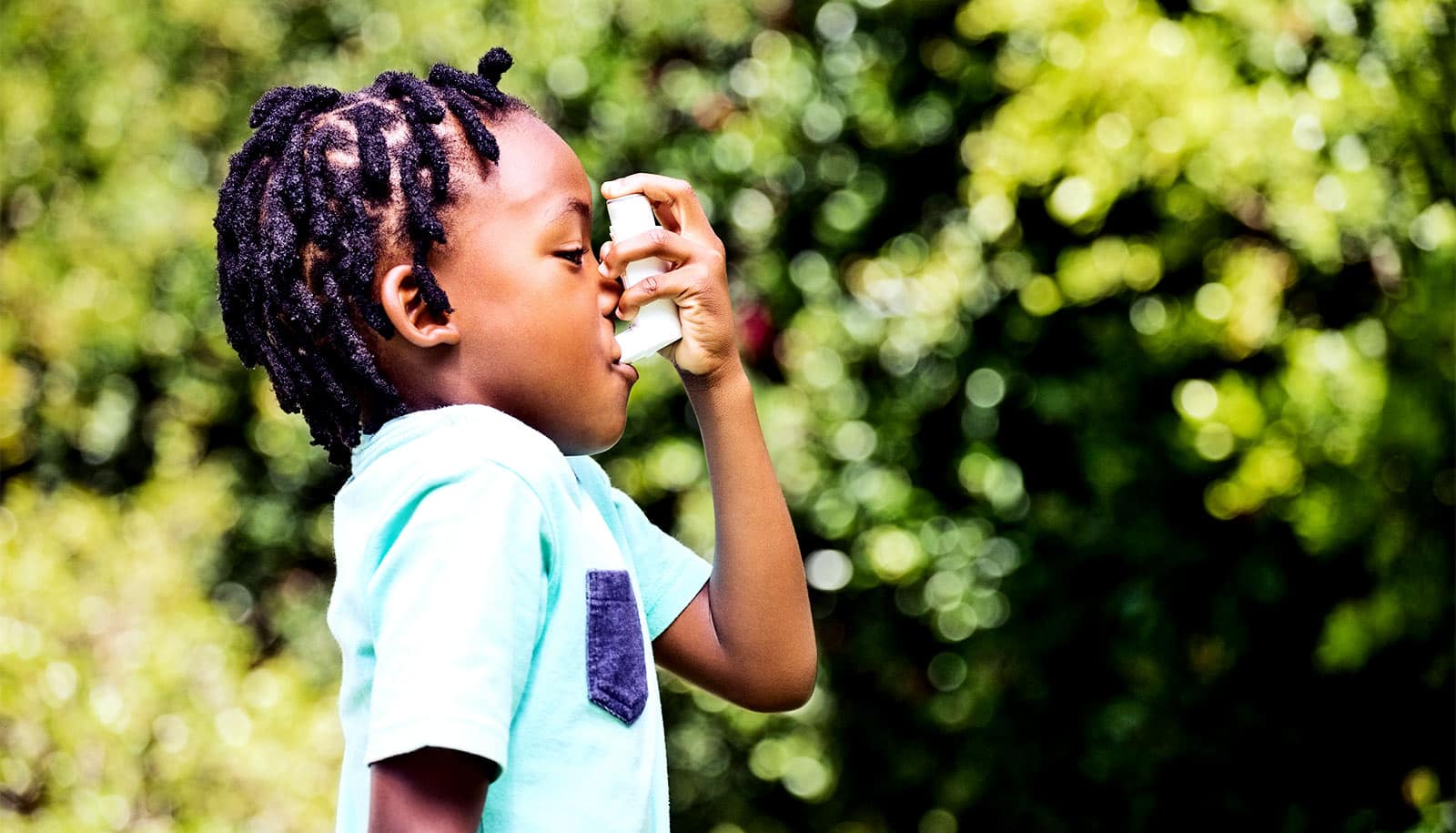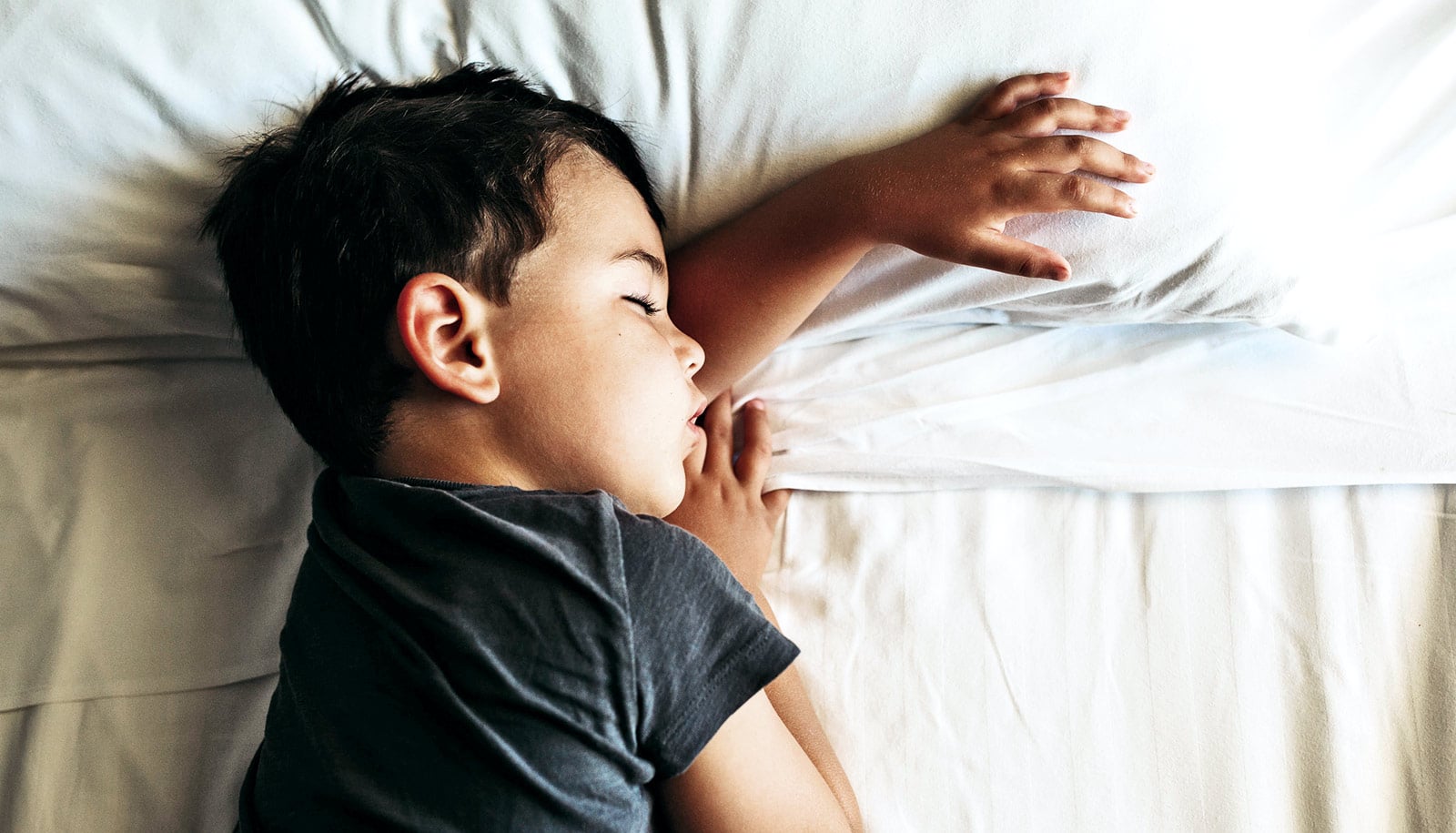The act of completing surveys in a research study helped improve symptoms for children with asthma, research finds.
The study, led by Sean Frey, an assistant professor in the department of pediatrics at the University of Rochester Medical Center, finds that children with uncontrolled asthma who participated in clinical trials as control subjects—and therefore did not receive an active intervention—experienced a decrease in symptoms over the course of the clinical trial that was strongly associated with the number of follow-up surveys that they completed.
This result provides evidence in support of the research participation effect, which refers to changes in patient behavior and outcomes due to simply assessment in a research study.
Frey’s work, which appears in Academic Pediatrics, uses three different school-based asthma therapy trials led by Jill Halterman’s research team. As part of those trials, children in the active participation group received their daily controller medications for asthma in school under the supervision of a school nurse or aide. Children in the control group did not receive daily controller medications in school.
Throughout those studies, parents of children in both the active and control groups received calls from researchers, who asked about their children’s illness and their number of “symptom-free” days.
“Looking at the data from those trials, we saw that children in the control group also experienced a decrease in their symptoms,” says Frey. “For our study, we wanted to look at exactly what was driving that improvement.”
Symptom-free days
Asthma is a disease that fluctuates, so researchers controlled for other factors that could have explained the decrease in symptoms, such as the seasons and the increase in a child’s age over the course of the study. After controlling for those factors, researchers found that the children’s symptoms still improved over the course of the study—and the number of symptom-free days that caregivers reported was significantly associated with the number of follow-up phone calls their parents had received.
“The more follow-up calls parents received, the more symptom-free days their children had,” says Frey.
At the first follow-up call, parents of children in the control group reported 2.4 more symptom-free days in a 14-day period than they did at the start of the study. By the fourth follow-up call, parents reported an additional 3.5 symptom-free days in a 14-day period compared to the start of the study.
Frey’s findings don’t take away from the initial conclusions of those trials, as children who received the school-based interventions still had significantly better asthma outcomes than children in the control group.
The research participation effect
More work in the area needs to take place, according to Frey, but the study has a few implications. First, the study suggests that conducting routine telephone-based follow-up could be part of an effective outreach strategy for managing childhood asthma. If proven to be helpful, doctors’ offices could incorporate regular phone calls to parents about their children’s symptoms into routine care practices.
“Parents often perceive asthma as an acute issue, but it’s a chronic illness. It’s possible that asking parents about their children’s asthma on a regular basis helps shift parents’ understanding and could change their behavior—thereby reminding them that their children need to take their medications,” says Frey. “As we think about how to reach families where they are and implement a community-based model of care, this type of outreach could be helpful.”
The findings could also help guide the design of future research projects. Researchers should consider the potential effect of multiple follow-up assessments and how they might impact the results of the study.
Source: University of Rochester



